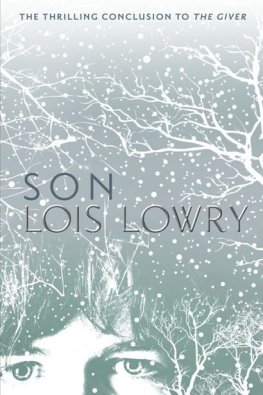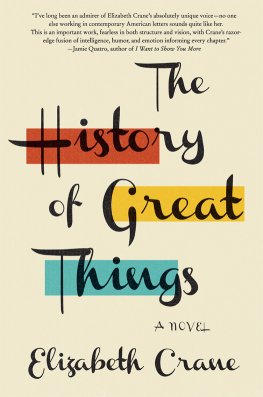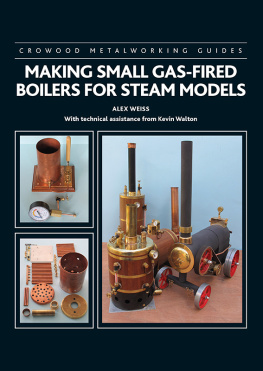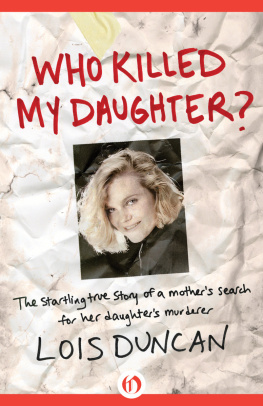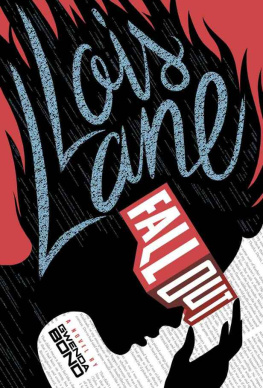Glass House Books
The Rag Boilers Daughter
Lois Shepheard was born in Lithgow, New South Wales to a father from Scotland and a mother descended from Scots. Lois was sent to learn the violin, to play reels and hornpipes and became a professional musician.
Her lifetime in music has included study at the Conservatorium of New South Wales and the Talent Education School of Music, Japan. She has played in the Sydney Symphony Orchestra and was a lecturer at the University of Melbourne and Victorias Institute of Early Childhood Development. For a time, she was Professor of Viola and Director of the Suzuki Program at Western Illinois University, USA.
In recent years, Lois was introduced to the fascination of family history. As she looked into the social background of her forbears, she realised the story of each of her ancestors was a book waiting to be written.
This great granddaughter of a rag boiler has a son in Melbourne and a daughter in Cologne, Germany. She is the proud grandmother of two boys in Melbourne.
Glass House Books
Brisbane
Glass House Books
an imprint of IP (Interactive Publications Pty Ltd)
Treetop Studio 9 Kuhler Court
Carindale, Queensland, Australia 4152
sales@ipoz.biz
ipoz.biz/GHB/GHB.htm
First published by IP in 2012
Lois Shepheard, 2012
All rights reserved. Without limiting the rights under copyright reserved above, no part of this publication may be reproduced, stored in or introduced into a retrieval system, or transmitted, in any form or by any means (electronic, mechanical, photocopying, recording or otherwise), without the prior written permission of the copyright owner and the publisher of this book.
Printed in 11 pt Book Antiqua on 14 pt Book Antiqua.
National Library of Australia
Cataloguing-in-Publication entry:
Author: Shepheard, Lois.
Title: The rag boilers daughter / Lois Shepheard.
ISBN: 9781921869396 (ebk.)
Subjects: Gilliland, Maggie.
Women--Scotland--Biography.
Scotland--History--20th century.
Dewey Number: 914.11082092
For my grandsons, Matthew and Jack
Acknowledgments
Cover Image: Maggie and James McAllister, wedding day. Thos. W. Steven, 89 Dalmarnock St, 3 James Morrison St (London St), GLASGOW, 14th June 1889. (From the collection of the late Mrs Ann Illingworth.)
Jacket Design: David Reiter
Author Photo: Justine Clark (Melbourne)
I thank my good friends Bill McDonald for introducing me to family history and Vilma Dyball for her encouragement as I wrote the book.
Thank you to family members: Amy Cowell, Leigh Cristaldi and Maisie Smith for additional family information.
I acknowledge the value of photographs and papers left by the late Ann Illingworth.
I would like to thank my wise editor, Lauren Daniels.
Contents
1 The Rag Boiler
2 The Rag Boilers Daughter
3 Hoof Jock
4 The Antichrist
5 The Legacy of King James I
6 First-footing
7 Duke Street
8 Wet Blankets
9 The Little Angel
10 Calderbank
11 Comin thr the rye
12 Making a Man of Him
13 Running Oot o Names
14 The Call of the Blue Mountains
15 The Heathen Enemy
16 1916
17 The Young Man from Australia
18 Born in Scotland
19 IRA
20 The Christina Gollan
21 The Bluebells of Scotland
22 Vehicles Containing Explosives
23 Leap Year
24 The Tram Conductor
25 460 Squadron
26 In New South Wales
27 if he have committed sins
28 Called to Gentle Jesus
You see things; and you say, Why?
But I dream things that never were; and I say, Why not?
(George Bernard Shaw)
This is the story of Maggie, whose mother was a rag boiler. It is a tale of a rag boilers yearning for her daughters life to be better than hers and in turn, that daughters hope for the best that destiny could offer her own children.
It relates how a family was affected by the religious conflict in Ireland in the early 20th century and is typical of the history of many present day Australians.
Maggies children were: Jenny, Agnes, Jim, Mary-Jane, Bessie, Willie, Robbie, Johnnie, Margaret, Gilbert, Sarah, Annie, Bertie, Stewart, John, Harry and Alastair.
1 The Rag Boiler
Scotlands Carron River rises in the beautiful, heather-covered Campsie Fells and flows eastward to the Firth of Forth passing the town of Denny on its right hand side. Its banks fringed with bushes, bellflowers and ferns, it trickles over stones or gushes between huge boulders; passes fields of barley and turnips, cattle and black faced sheep. Its brown trout try to dodge the ducks and the bushy tailed, green-eyed minks creep from their burrows in its banks to search for food. It flowed past corn fields too and powered the wheels for the corn mills. Farmers trundled their grain to be ground and trundled home again with their flour.
The idyllic scene was gradually distorted as Scotland met the demands of the industrial age. The water flowing past Denny became sullied by the distillery, the dye works, the iron works and the mills producing fine quality paper. Nearly half of Dennys population worked in paper mills, slaving for countless hours with aching backs and vacant eyes.
Janet Gilliland was one of those toiling daily amongst a maze of pipes, steam, unbearable heat and ear splitting noise. The huge waterwheel of the Carron Paper Works drove the clanking, whirring machines mercilessly; the enormous boilers hissed unceasingly. And though the walls were for the most part glass, no one could see out through the grime to admire the River Carron even if they had the time, energy and inclination to do so.
Inside the mill, the air was dense with steam. Generally it was impossible to recognise ones co-workers even when they stood right beside you. They were like so many faceless spirits, doggedly trudging the same route through the thick fog, day after day.
Janet had worked in one paper mill or another since she was nine, starting out as a printers tearer. Two of her sisters were among the labourers at the Carron Works now, dusting, sorting and cutting up rags and wheeling them on carts to the enormous boilers. Janet worked at a boiler, feeding rags into the heaving water, standing over them to poke and stir with a long pole. Perspiration poured down her face and arms and her dark hair hung limp and permanently wet.
On a particular morning, she began work at seven oclock as usual. The baby in her belly felt very low but Janet was sure it wasnt due yet. Walking was hard that day and she was nervous of slipping on the wet flagstones. She panted, struggling even more than usual to extract enough air through the steam.
About midday she realised she was in labour. The sudden convulsive pain was agony. She crouched on the floor, head pressed hard against a cart, eyes closed tight, her face contorted. She moaned, clutched both arms round her knees and pulled them towards her body. It wasnt until the contractions became unbearable that she screamed for help.





